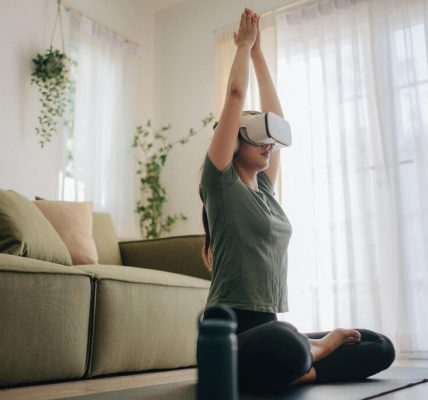In the fast-paced world we live in, stress has become an inevitable part of our daily lives. The constant hustle and bustle, combined with various responsibilities, can take a toll on our mental and physical well-being.
Fortunately, there are holistic approaches that have proven effective in alleviating stress. This article explores the profound benefits of yoga and meditation, two ancient practices that offer a reprieve from the chaos of modern life.
Understanding the Impact of Stress
The Physical Manifestations of Stress
Stress, when left unchecked, can manifest physically in the body. From tension headaches to muscle pain, chronic stress contributes to a range of physical ailments. Understanding these manifestations is crucial in addressing the root causes.
The Mental Toll of Stress
Beyond the physical, stress takes a significant toll on mental health. Anxiety, irritability, and difficulty concentrating are common symptoms. Delving into the psychological aspects of stress provides insight into the importance of adopting practices that address both the mind and body.

The Ancient Wisdom of Yoga
Yoga as a Physical Practice
Yoga, originating from ancient India, is a holistic practice that unites the body, mind, and soul. The physical aspect of yoga involves a series of postures (asanas) that enhance flexibility, strength, and balance. These postures, combined with conscious breathing, create a moving meditation that has proven effective in reducing stress.
The Power of Breath in Yoga
Central to yoga is pranayama, the practice of breath control. The deep, intentional breathing in yoga helps activate the body’s relaxation response, reducing the production of stress hormones. Exploring various pranayama techniques provides individuals with a toolkit to manage stress in different situations.
Yoga for Mind-Body Connection
Yoga emphasizes the mind-body connection, encouraging practitioners to be present in the moment. This mindfulness approach fosters self-awareness and a non-judgmental acceptance of one’s thoughts and feelings.
The meditative aspects of yoga contribute significantly to stress reduction by promoting mental clarity and emotional well-being.
The Tranquility of Meditation
Mindfulness Meditation
Mindfulness meditation, rooted in Buddhist traditions, has gained widespread popularity for its efficacy in stress reduction. This practice involves focusing the mind on the present moment and observing thoughts without judgment.
Research indicates that regular mindfulness meditation can rewire the brain, diminishing the neural pathways associated with stress responses.

Loving-Kindness Meditation
Another form of meditation, loving-kindness meditation, involves cultivating feelings of compassion and goodwill towards oneself and others.
This practice has been shown to increase positive emotions and reduce symptoms of psychological distress. Exploring the diverse approaches to meditation allows individuals to find a technique that resonates with them.
Meditation and the Relaxation Response
Meditation triggers the relaxation response, a physiological state opposite to the stress response. As individuals engage in regular meditation, the body becomes more adept at activating this response, leading to a cascade of positive effects such as reduced heart rate, lower blood pressure, and a sense of calm.
Integrating Yoga and Meditation for Maximum Impact
Synergy of Yoga and Meditation
While both yoga and meditation offer unique benefits, their synergy creates a powerful stress-relief combination. Yoga prepares the body for meditation by releasing physical tension, making it easier to sit in stillness.
The mindfulness cultivated in yoga seamlessly transitions into meditation, amplifying the overall impact on stress reduction.
Establishing a Consistent Practice
Consistency is key to reaping the benefits of yoga and meditation for stress relief. Establishing a regular practice, even if brief, can significantly impact one’s ability to navigate stressful situations with resilience. Tips for incorporating these practices into daily life can empower individuals to make self-care a priority.

Conclusion
In a world that often feels chaotic and overwhelming, the ancient practices of yoga and meditation stand as beacons of tranquility. Understanding the physical and mental toll of stress lays the foundation for embracing these holistic approaches.
Whether through the dynamic movements of yoga or the serene stillness of meditation, individuals can tap into a reservoir of inner peace, fostering resilience and well-being in the face of life’s challenges. The integration of yoga and meditation is not just a remedy for stress; it is a pathway to a balanced and harmonious life.






